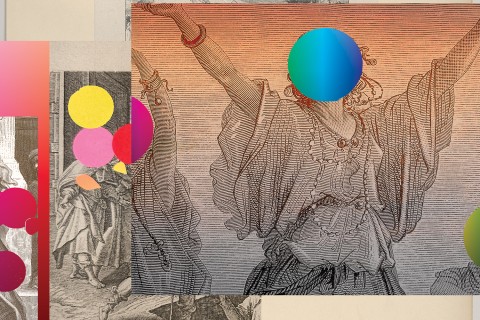Free speech is not enough
In the 1990s the U.S. Supreme Court decided a handful of religious liberty cases on the basis of the First Amendment’s free speech clause. The most significant of these was Rosenberger v. University of Virginia (1995). In that case, the University of Virginia had denied funding to a religious student publication called Wide Awake. The case began with a focus on the establishment clause, and it might have been based on the free exercise of religion—but it ended up being about free speech. The court ruled in a 5-4 decision that once the university created a policy to fund student publications, it had created a “limited public forum” for speech. Within such a forum the university could not discriminate on the basis of the content of the speech. The free exercise clause was largely ignored. In the ensuing years several other cases followed a similar pattern.
At the time, many considered these cases victories for religious groups. The free speech strategy held up to secular arguments against special treatment for religion—treating religion as speech made it just like any other kind of expression. Evangelicals, who were invariably the plaintiffs in these cases, argued that all we want is that religion be treated like any other form of speech. We’re not asking for special treatment. One Southern Baptist leader I interviewed even suggested that prayer in schools is in part a free speech issue for students. Prayer is speech, he told me.
But some of us worried that using free speech to settle what might have been considered free exercise cases would come back to haunt religious groups. Would the free exercise clause fall into disuse like the Ninth Amendment, becoming a relic of a former time? In my recently released book Baptists in America, co-authored with Thomas Kidd, the term free speech appears only once, and we use it only by way of comparison to how the Supreme Court has treated free exercise of religion. By contrast, the terms religious liberty, religious freedom, and free exercise of religion appear almost 100 times.
The reason is that in the public square, free exercise has always been the Baptist thing. Colonial Baptists began as America’s largest and most significant group of cultural outsiders. They fought and suffered to push free exercise of religion to the forefront of the rights debate. It's not that Baptists weren't concerned about free speech, and they certainly believed that the fight for other freedoms went hand in hand with religious liberty. But they never allowed religious liberty to be subsumed within any of those other enumerated freedoms. And they certainly wanted more than just the right to say what they believed. They wanted to exercise their religion free of government restrictions.
The transformation of free exercise into free speech carries an obvious risk: what if a free exercise issue comes up that does not involve speech? I recall discussing this in my church-state graduate seminar at Baylor, but in the late ’90s I could not think of what such a case would look like. Now we all can envision such a case: something related to same-sex marriage. Many churches and religious schools want to continue to adhere to their traditional understanding of marriage as being between a man and a woman—and they need the free exercise of religion, not merely free speech. Catholics, evangelicals, Mormons, and others will need to insist on not just free speech to articulate their ideas, but free exercise to actually live them.
As marriage is now considered a civil right, there could be a push to use state power to coerce private groups to accept same-sex marriage or else lose state funding and tax exemptions. Think about the case Bob Jones University v. U.S. (1983) in which the college lost its tax exemption because of its restriction on interracial dating. Religious colleges could lose federal funding for research and student scholarships if they refuse to recognize gay marriage. It is even conceivable for non-discrimination laws to be used to treat churches as places of public accommodation that cannot refuse services to those seeking gay marriage.
This is a religious free exercise issue that goes significantly beyond freedom of speech, press, or assembly. We are likely to learn in the coming decades whether the type of free exercise of religion that Baptists and other religious groups have advocated still exists as something distinct from free speech.
Our weekly feature Then and Now harnesses the expertise of American religious historians who care about the cities of God and the cities of humans. It's published in partnership with the Kripke Center of Creighton University and edited by Edward J. Blum and John D. Wilsey.





